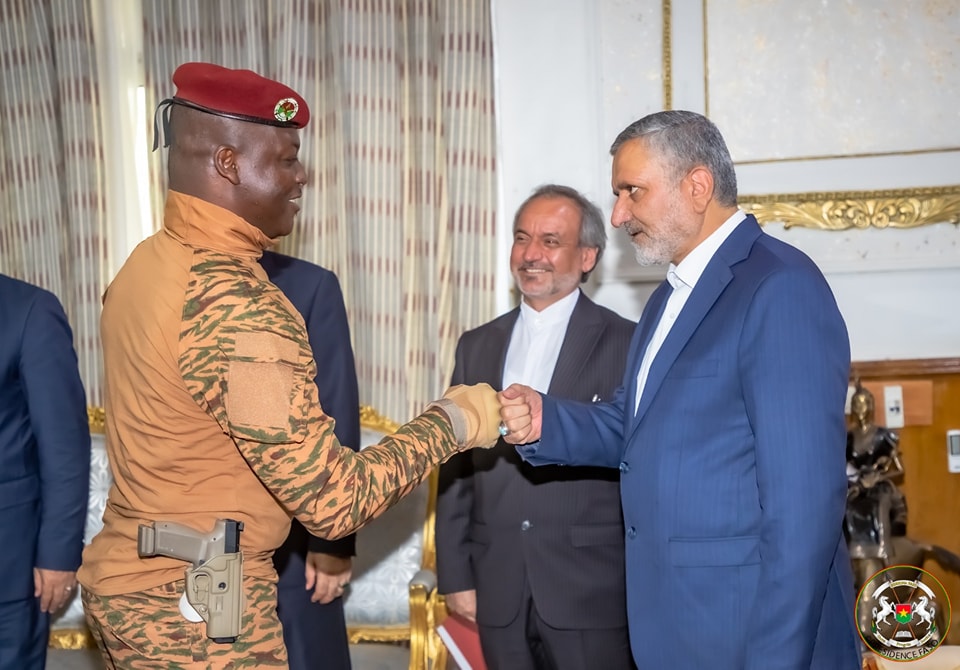By Maria de Dieu
Since his rise to power a year ago, Captain Ibrahim Traoré, the newly established leader of Burkina Faso, appears to have forged a strong rapport with the Burkinabe populace.
The annals of Burkinabe history bear witness to notable figures such as Maurice Yameogo, Sangoulé Laminezana, Sayé Zerbo, Jean-Baptiste Ouedraogo, and, most significantly, Thomas Sankara, who met a tragic end 36 years ago, succumbing to assassination.
Thomas Sankara’s legacy continues to resonate in the collective consciousness of this nation, characterized by his ideological stance, principled positions, and visionary aspirations for the country during his tenure.
Over the course of the past twelve months, the Burkinabe citizenry has experienced governance under the stewardship of Captain Ibrahim Traoré, a youthful leader at the age of 35, whose unique stature defies facile comparisons.
Nonetheless, certain parallels emerge when one considers these two leaders. Both ascended to power in their youth, sharing military backgrounds and a shared commitment to revolutionary ideals, both in theory and in practice.
Since seizing control on September 30, 2022, Captain Ibrahim Traoré has cultivated significant support, thereby conferring legitimacy to his rule.
This endorsement emanates not only from international political, economic, and diplomatic quarters but, crucially, from the Burkinabe populace itself.
It appears that the Burkinabe people perceive him as the political saviour they had long yearned for, a leader who epitomizes their aspirational model of governance.
Notwithstanding the devastating toll exacted by jihadist violence, responsible for 17,000 casualties and the internal displacement of two million individuals, a prevailing sentiment persists that the vast majority of Burkinabe citizens have vested their unswerving trust in Ibrahim Traoré and his administration to efficaciously combat the jihadist menace.
This conviction was strikingly evident during the recent military coup attempt on September 26 and 27, 2023. The Burkinabe citizenry, acting in unison, stood resolutely against the threat.
Captain Ibrahim Traoré duly acknowledges this unwavering support, articulating, “The people, in their benevolence, have entrusted us with their destiny—a responsibility we wholeheartedly embrace.
Our resolve in this mission grows stronger as long as the people remain steadfast,” as he elucidated in a recent interview with Burkina Faso’s national television.
For the military leader, the security and well-being of the Burkinabe populace reign supreme, even if this entails postponing the initially envisaged military transition slated for July 2024.
He emphasized, “While we hold hope for the eventual conduct of elections, such a process must not be confined to Ouaga and Bobo alone. Every Burkinabe must have the opportunity to exercise their franchise in the selection of their president. Consequently, presidential elections, as a matter of priority, yield precedence to our imperative of ensuring security.”
Captain Ibrahim Traoré acknowledges the arduous challenges inherited by his administration, particularly in the realm of national security.
He remarked, “Organizationally, in terms of personnel and armament, our armed forces were sorely lacking. We were ill-prepared for armed conflict, possessing inadequate equipment and an ineffective communication infrastructure.
The entire military possessed less than 200 Kalashnikov rifles. Our vulnerability was palpable. Presently, our capabilities have grown exponentially.”
Furthermore, sweeping reforms encompassing multiple sectors of the Burkinabe nation are presently underway. These encompass legislative structures, political parties, social concerns, administrative processes, and economic initiatives. The military junta is diligently labouring to harmonize these endeavours with the collective aspirations of the populace.
The question of elections remains a pivotal consideration. Although Captain Ibrahim Traoré and the Burkinabe people appear to be in alignment, adhering to international norms that advocate for the conduct of free and democratic elections assumes paramount significance.
Despite the challenging security landscape, it is incumbent upon the government to exert every conceivable effort in honouring its commitment to organizing free and transparent elections by June 2024.
Such adherence is imperative to forestall Burkina from becoming a focal point for international sanctions, a prospect fraught with adversity in the current milieu.
This article was originally published in French, and Translation to English was done by Daniel Okoth.
Cover Photo: Présidence du Faso



